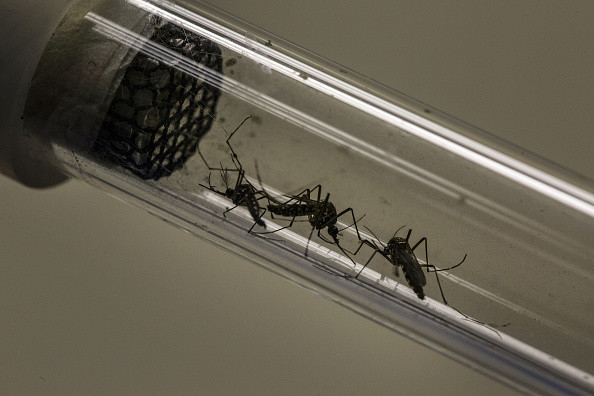Yellow fever poised to become global health emergency with WHO urged to take action

The current outbreak of yellow fever in Angola could lead to the latest global health emergency, say two professors from Georgetown University. They say the continued spread of the disease, and the lack of vaccine supply, means the World Health Organization (WHO) should "urgently convene an emergency committee" to coordinate an international response.
Yellow fever is an acute viral haemorrhagic disease, transmitted by the Aedes and Haemogogus mosquitoes. The virus causes fever, headaches and vomiting in most people. However, in around 15% of patients, it can lead to abdominal pain, bleeding and reduced kidney function.
The virus has been increasing in Angola since December 2015. By the end of February of this year, 664 suspected cases had been reported of yellow fever, including 125 deaths. Two months later, those numbers have increased to 2,023 and 258 respectively.
The Democratic Republic of the Congo government officially declared an outbreak of yellow fever at the end of April. Cases have also been reported in Uganda and Kenya. Outside Africa, Peru has had at least 25 suspected cases, nine of which have been confirmed. Nine cases have been identified in China in travellers returning from Angola.
Daniel Lucey and Lawrence Gostin, from Georgetown University, have urged the WHO to call an emergency committee in response to the spread of the virus. It is only then that the Director-General of the WHO, Margaret Chan, can declare a public health emergency of international concern (PHEIC). A PHEIC defines an event that could have serious, sudden, unusual or unexpected implications for public health. These events may require immediate international action.
"There are strong reasons to convene an emergency committee now," the professors write in their JAMA Viewpoint. "The looming threat of a severe yellow fever vaccine shortage exists amid epidemics in Africa. Even if the emergency committee does not recommend a public health emergency of international concern, it could recommend invoking EUAL [Emergency Use Assessment and Listing] procedures for use of a reduced vaccine dose." EUAL procedures are issued when the public could be "willing to tolerate less certainty" over the safety of vaccines, or lower doses. This was invoked for the Ebola crisis of 2014-2015.
The professors say that the WHO should convene with manufacturers of yellow fever vaccines. They should incentivise the production of vaccines, and coordinate mosquito control, the professors say.
Changing the system
As more emerging infectious diseases are being reported, the experts say that more efficient strategies should be put in place for declaring an international health threat. They say that at the moment, the delay in international response is too long. They believe the WHO should establish a standing emergency committee, which meets regularly, to advise the director-general on whether to declare an emergency or not.
They say that as the WHO begins its election process for a new director-general, now is an appropriate time to strengthen its leadership in global health security.
The authors of the Viewpoint said: "The complexities and apparent increased frequency of emerging infectious disease threats, and the catastrophic consequences of delays in the international response, make it no longer tenable to place the sole responsibility and authority with the WHO's director-general to convene currently ad-hoc emergency committees."
© Copyright IBTimes 2025. All rights reserved.






















